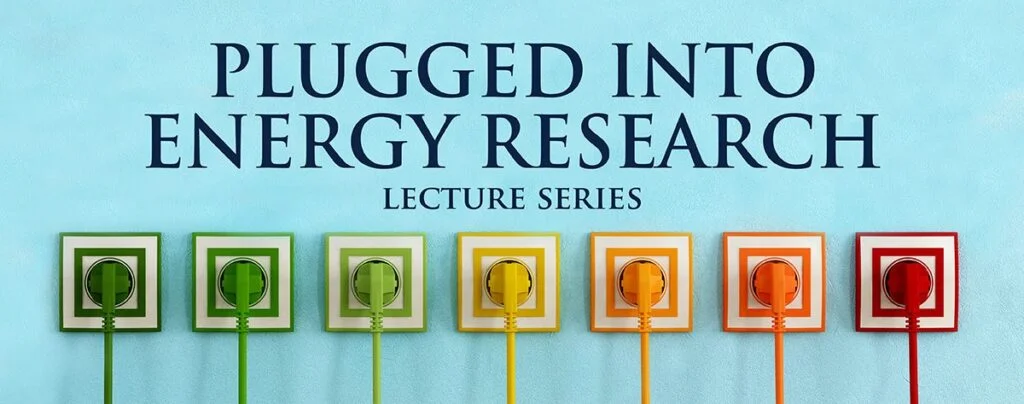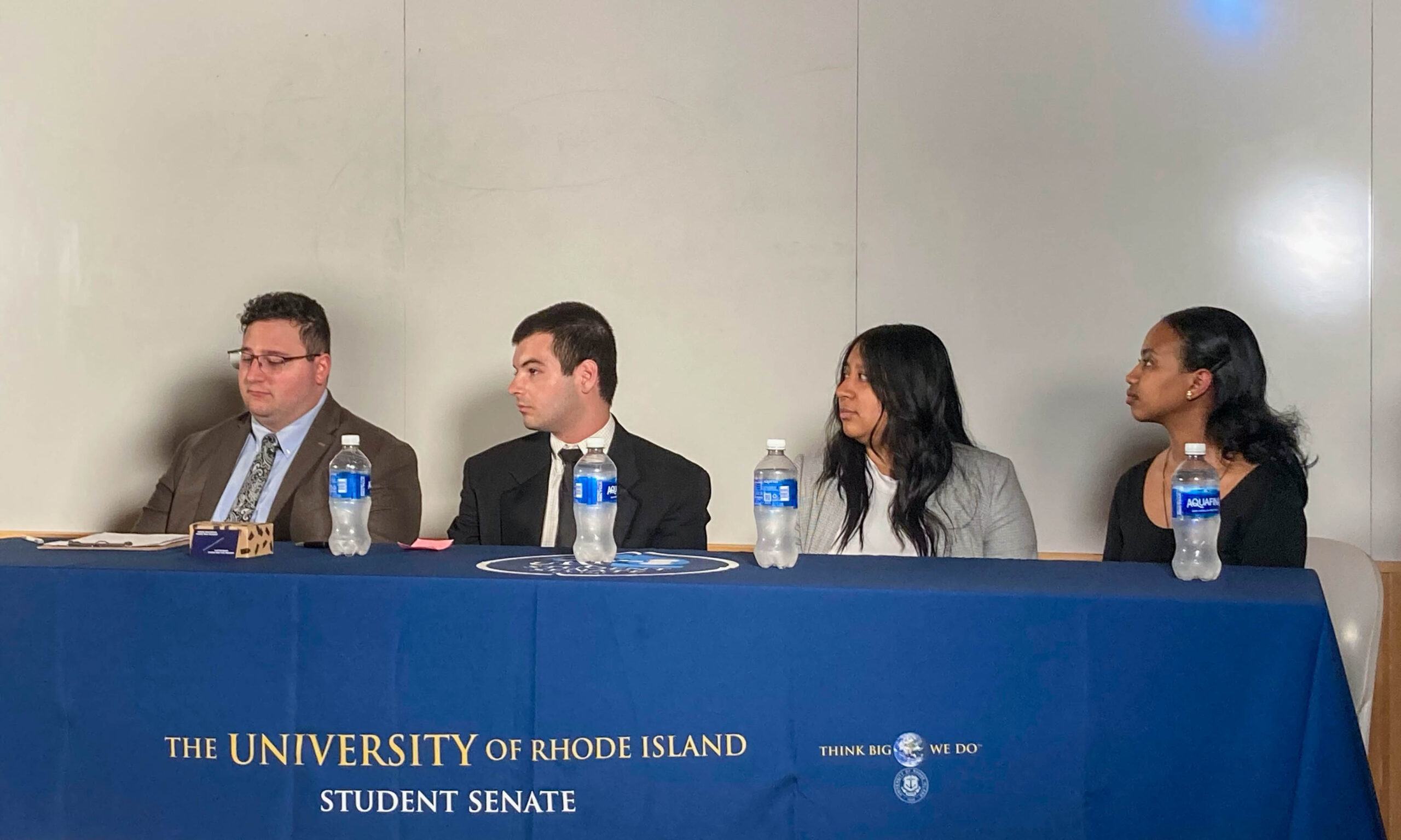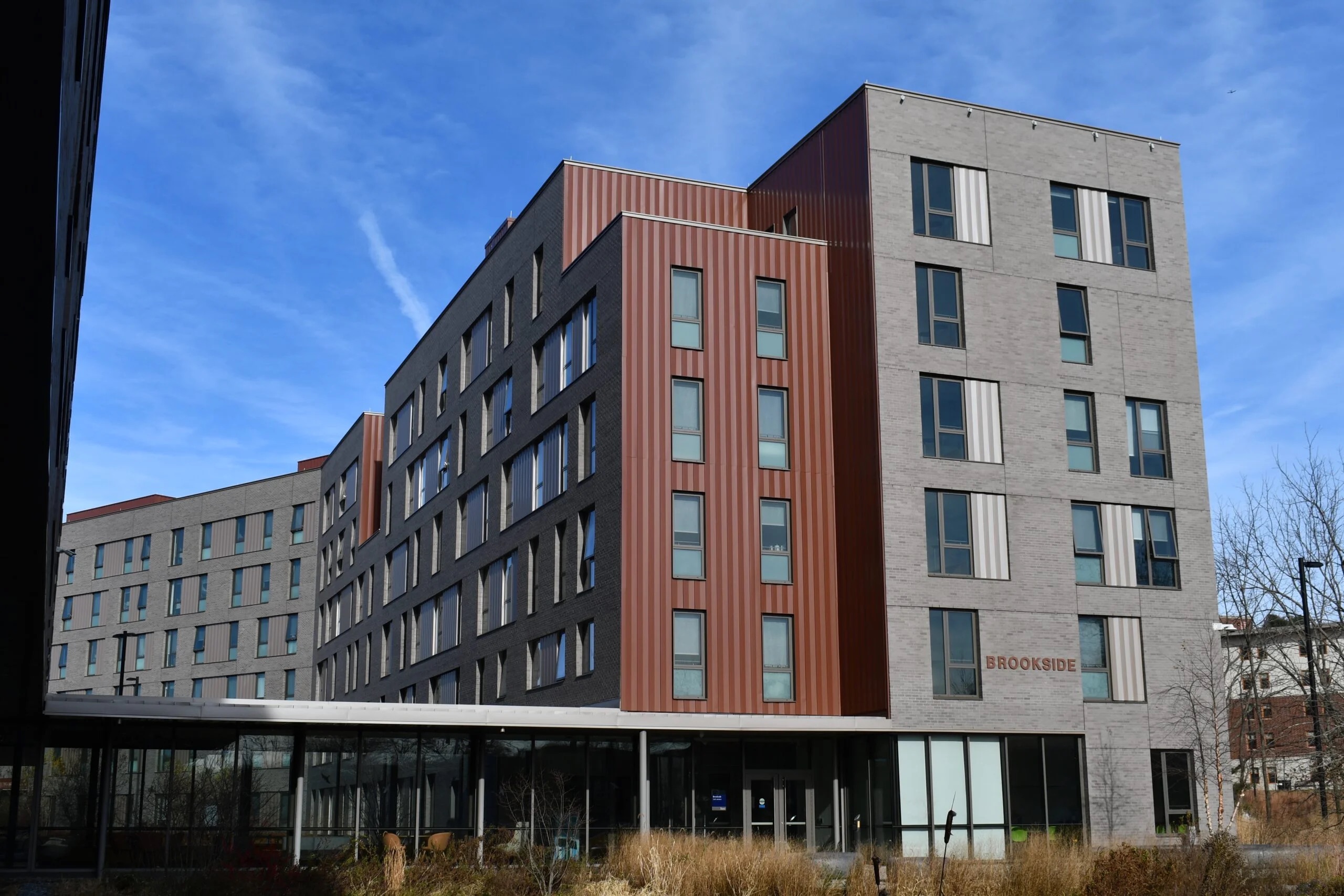Members of the University of Rhode Island community learned about methods to improve their homes’ energy efficiency and avoid adverse health effects at a lecture on Tuesday.
The event, titled “Comfortable, Healthy and Cost Effective: Power of Home Energy Upgrades,” took place in the Robert J. Higgins Welcome Center and was hosted by the university’s Cooperative Extension program.
The lecture featured panelists from the Comprehensive Community Action Program, Rhode Island Energy and CLEAResult.
Panelists discussed an income eligible program through RI Energy and CCAP that allows low income residents to make home energy improvements for free. Initiatives such as these use Rhode Island government money specifically set aside to improve energy efficiency in households.
“If your household income is $75,000 or less you will receive these services for free,” said Carinel LeGrand, the residential income eligible energy efficiency program manager at RI Energy.
Balanced ventilation, heating and cooling, and the enclosure of the house is very important to maintaining energy efficient houses, according to Jon Erickson, senior project manager at CCAP. Switching to these energy efficient methods of building can save the residents money on electric and heating bills.
Balanced ventilation keeps pollen, water vapor and dust out of the home, which can cause adverse health effects, Erikson said.
Another goal brought up in the conference was to encourage higher standards for energy codes to prevent homes from experiencing energy efficiency issues.
“We test all these new homes that are going through our own programs, and they’re not that energy efficient,” Erickson said. “Nevermind the houses that are being built that we’re not testing through our program.”
Building new homes with these codes already in place is much easier and less expensive than having to restructure pre-existing homes, Erikson said.
“We spend most of our lives inside, and we want that indoor environment to be comfortable and healthy for us,” Erickson said.
Brian Ceballos works as an energy auditor for CCAP. Before working for the company, CCAP fixed leaks in his house and installed new heating and cooling systems for free.
“I can relate to the customers,” Ceballos said. “I saw first hand the difference it made in my personal house.”
The moderator for this lecture was Pricilla De La Cruz, Providence’s director of sustainability. She also serves on the Energy Efficiency Council of RI, and considers herself a lifelong clean energy and climate advocate.
“[The council] helps the state to reach climate goals through cost effective energy programs and finds ways to decrease climate emissions,” De La Cruz said.
The URI Cooperative Extension program hosted this event in alignment with their strategic areas of focus, according to Kevin Drum, program coordinator for the Energy Fellows Program at the university.
These areas include land stewardship, food systems and agriculture, water resources, energy efficiency and conservation and healthy lifestyles.
This event was the first of two lectures in URI’s Plugged into Energy Research lecture series. The second lecture will be held on Nov. 19, titled “Developing a Climate Strategy for Rhode Island: The Role of Energy Efficiency.” More information on this upcoming event is available on the series’ website .




